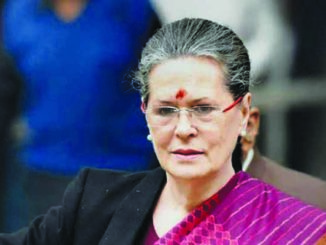MUMBAI (TIP): As regulators try to contain one of India‘s most spectacular investment scandals, dozens of smaller but similar schemes continue to mushroom, employing tactics similar to the ones that enriched the Sahara group and later brought it to its knees.
Sahara began as a scheme for small depositors, but it grew over decades with investment plans that critics say were designed to avoid regulatory scrutiny. At its height, it was one of India’s biggest business empires, stretching from Formula One motor racing to New York’s Plaza Hotel.
Now its boss is in jail for more than a year and some staff say much of its business is threatening to stall, after it raised billions of dollars from investors by selling bonds that were ruled to be illegal.
Patchy oversight in India means countless illegal investment schemes continue to emerge, however, often in the villages.
So far this year, the Securities and Exchange Board of India (SEBI) has barred more than 70 firms that raised funds through debentures or collective investment schemes, promising returns from cash put in land, cattle and even holiday homes.
In most cases, it cited the court order against Sahara in support of its action.
That is cold comfort for retired Indian army officer KL Sharma. Hoping to raise money for his daughter’s wedding, he placed a third of his savings into an investment scheme run by property developer PACL in 2007.
The investment matured last year, but there is no trace of the 270,000 rupees ($4,339) he put in, never mind the promised returns that were supposed to double his money.
“It was hard-earned money that I invested because agents for PACL in my village convinced me I would get good returns. Now I am stuck,” said Sharma, speaking from Rajasthan, western India.
As late as November, months after PACL was put under investigation and barred by regulators, local media reported that SEBI told the Corporate Affairs Ministry it was still raising funds from depositors.
SEBI officials say that despite increased monitoring and financial education programmes since the Sahara case and a spate of other scandals, they are still overwhelmed by a backlog of cases, as a financially illiterate adult population, less than half of whom have access to formal banking, continues to put its trust in local agents for such schemes.
One official said many schemes had operated for decades without oversight, until legal changes last year gave SEBI broader powers.
“A collective investment scheme in itself is not unlawful, but the way these schemes have been run, by and large as assured-return guarantee schemes, that’s not allowed,” he said.
“The law is clear; it requires them to come and register with us. But they don’t, because they have operated without any oversight for years. Why will they want any supervision now?”
Collective investment schemes, often known locally as chit funds, operated in the regulatory gaps for years by getting licences from state authorities that were ill equipped to monitor them.
Last year, SEBI was mandated to oversee any investment vehicle that raises more than 1 billion rupees from the public.
Firms issuing any form of security to more than 49 investors are supposed to register with SEBI, but many flout the rules, and activists say even when caught and barred, companies can simply change their names and get back in the market.





Be the first to comment